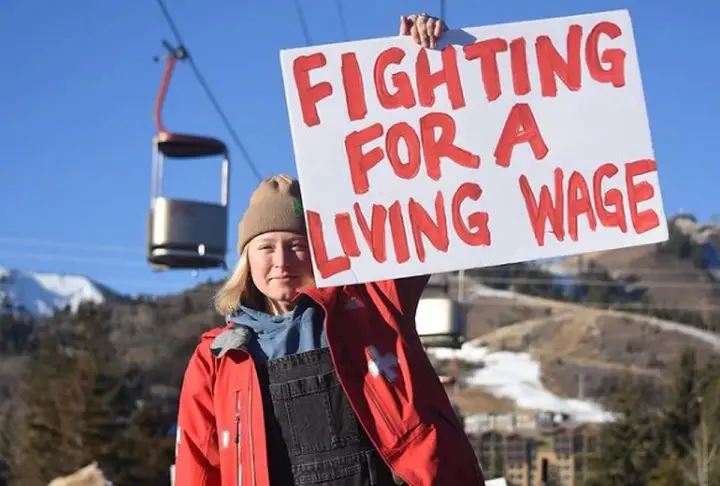Settlement Website: ResortSettlement.com
Proof Of Purchase: Not applicable
Potential Claim Amount: Variable
Objection Deadline: 05/20/2022
Exclusion Deadline: 05/20/2022
Claim Form: HamiltonVail (resortsettlement.com)
Deadline for Giving Consent to Join Form: 05/20/2022
Final Hearing Date: 06/17/2022
Settlement Amount: $13.1 million
Vail Resorts is a management company that is popular for its renowned mountain resorts in Colorado Town such as Breckenridge and Vail. Several resorts in Park City, Utah; Afton Alps, Minnesota; Mt. Brighton, Michigan; Wilmot Mountain, Wisconsin; the Lake Tahoe region of California; and even two locations in Australia and Canada are managed by the company. Vail Resorts is currently facing a class-action lawsuit that claims that the management company violated labor laws with denied breaks, improper wages, and failure to reimburse expenses. Irrespective of this $13.1 million settlement, Vail Resorts can currently seek the service of its employees to cater to customers at these locations.
The class-action lawsuit contends that Vail Resorts violated the FLSA (Federal Fair Labor Standards Act) and other state laws. Claims have been filed against Vail for:
- Unpaid wages include but are not limited to overtime wages, minimum wages, double-time wages, and wage premiums.
- Failure to authorize, offer or allow proper rest or meal periods under the FLSA and/or other state laws.
- Failure to pay rest break premiums and/or proper meals under the Class States’ laws.
- Failure to reimburse expenses and resulting claims for unpaid wages arising from such allegations under the laws of the Class States or FLSA.
- Unlawful rebates, deductions, or refunds from wages and resulting claims for unpaid wages arising from such allegations.
- Breach of contract under the Class States laws.
- Failure to main accurate records or keep time under the laws of the Class States or FLSA.
- Failure to provide proper employment records on request under the laws of the Class States.
- Inaccurate or improper wage statements under the laws of the Class States.
- Failure to reimburse wages timely during employment under the laws of the Class States and/or FLSA.
- Failure to timely pay wages during or after termination under the laws of the Class States and/or FLSA.
- Solicitation of employees through misrepresentation under the laws of the Class States.
- Fraudulent solicitation of employees under the laws of the Class States.
- Employment under conditions that might be detrimental to the health of an employee under the laws of the Class States and/or federal law.
- The deceptive or false representation or advertisement under the laws of the Class States.
- Unfair business practices under the laws of the Class States.
- Unfair competition under the laws of the Class States.
- Statutory or civil penalties that are including but are not limited to those under PAGA.
- Unjust enrichment under the Class States laws.
Vail believes it has compensated all of its employees by complying with the law and has denied any wrongdoing. Nothing about the settlement can be used as an admission or indication of any liability or fault against Vail. Vail Resorts has agreed to resolve these allegations to avoid the cost, time, and uncertainty of litigation. The settlement terms will cover service awards, administrative costs, and attorney’s fees. A $375,000 payment will be allocated to the California Labor and Workforce Development Agency under California’s Private Attorneys General Act. The court has tentatively approved a payment ranging up to $350000 to the Settlement Administrator, A.B. Data Ltd. for the expenses of processing claims and notifying potential Class Members.
The Class Counsel will request the Court to approve attorney’s fees not exceeding 1/3rd of the Gross Settlement Amount of $4,366,666.67, and reimbursement for litigation expenses incurred by the Class Counsel not exceeding $50000. Approval of service awards of $10000 each will be requested by the Class Counsel for named plaintiffs Christopher Hamilton, Zachariah Saiz-Hawes, William Berrier, Matthew Allen, Adam Heggen, and Paul Roberds who acted as representatives on behalf of the Class members and spent considerable time assisting with the action.
All class member payments shall be funded from a pool of around $7.9 million after these deductions. The payment amount shall vary according to the number of hours worked by each class member for Vail during the class period and the position they worked in. “Snow Positions” include positions in Ski School, Mountain Safety, Snowmaking, Lift Maintenance, Mountain Host, Lift Operations, Mountain Dining, and Epic Mix job families. “Non-Snow Positions” are inclusive of all other job titles. Class members holding Snow Positions are eligible for getting higher settlement payouts. Currently, no payment estimates can be provided. If settlement funds remain after meeting the first round of claims, then class members who deposited their first payment might be eligible for an additional share of the remaining funds on a pro-rata basis. One-third of each settlement payment will be treated as wage claims for tax purposes, reported on an Internal Revenue Service (IRS) W-2 form, and subjected to tax withholdings. The remaining two-thirds of the payment will be reported on a 1099 Form.
Eligibility For Making Claim: The terms of this settlement are expected to benefit non-exempt employees of Vail Resorts management Co. who worked at any of its resorts in mountain locations during the applicable class period. These periods vary according to the state the Class member was employed in, as follows:
- 21, 2010, to Oct. 23, 2021, for class members employed in Wyoming.
- 21, 2014, to Oct. 23, 2021, for class members employed in Indiana, Ohio, Washington, Minnesota, Vermont, New York, Michigan, Nevada, Wisconsin, and Colorado.
- 21, 2015, to Oct. 23, 2021, for class members employed in Missouri.
- Oct. 21, 2016, to Oct. 23, 2021, for class members employed in California, Pennsylvania, and Utah.
- Oct. 21, 2017, to Oct. 23, 2021, for class members employed in New Hampshire.
- Oct. 21, 2016, to Oct. 23, 2021, for class members who are not employed in any of the above-mentioned states.

